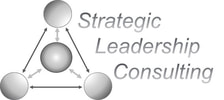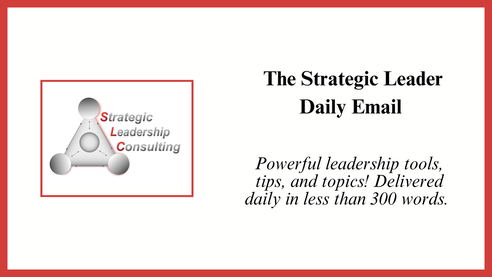|
Happy Tax Day! Oh, wait, that’s not a thing this year (until later). Silver lining?
Yesterday we discussed two of the barriers to strategic leadership: being overwhelmed by the urgent and lacking clarity of purpose. Today, we’ll explore the other two:
We are infatuated with big change because we want to be inspired and we believe in magic bullets. Big change rarely works. In the future we will go into depth as to why it doesn’t, but for today let’s focus on inspiration and magic. A grand vision for change is exciting. These visions are usually led by highly placed champions who can bring significant resources to the effort. The effort, especially in the early stages when support is concentrated and plentiful, can energize people across the organization, create a sense of shared purpose, and spur collaboration across silos. These are all great things but unfortunately, they often don’t lead to the changes we had hoped for. Again, we will look at why in the near future. The idea of a magic bullet is compelling. If we could just do this one thing, or just change this one thing, then our world would be better. There are obviously significant issues that, if “fixed” could substantively improve the organization. Unfortunately, the complex nature of organization, and the people living within them, means that most issues will require many smaller solutions as opposed to one big one. Organizations simply aren’t structured to respond to single-focus changes. Additionally, when we rely on magic bullets, we wind up ignoring what Jim Collins referred to as “the brutal facts of reality” (Collins, 2001, p. 69). In this world, magic is rarely able to alter reality, unless you are JK Rowling or a similarly gifted storyteller. Many of us lack the training and skills to be leaders. Ouch! That’s not an indictment on leaders, it is merely an observation based on how we choose our leaders. Most people rise to leadership positions based on several behavioral traits:
Ironically, some of our biggest leadership challenges correspond to the strengths that got us into leadership roles in the first place.
In addition to these issues, the way leaders are trained can also undermine our ability to grow in our jobs. Some of us are promoted with no leadership training while others may participate in leadership degree programs or intensive workshops. Formal programs usually offer a strong background in understanding the theories that drive leadership and organizations. The big problem is that formal training usually occurs before we take a position, is unable to account for each of our unique contexts and lacks on-site follow up. Once we move into our roles, the amount of training drops precipitously and what training there is usually occurs off-site, is decontextualized, and lacks follow through. To add insult to injury, many organizations underinvest in leadership development and support. leadership coaching is often a luxury reserved for only the highest hierarchical tiers of the organization. It’s easy to feel a bit pessimistic in the face of these four barriers (overwhelmed by the urgent, unclear purpose, big change, lack of training). Tomorrow we’ll look at a tool that can help you become more aware of some of these barriers. On Friday will do some serious reflection, and next week we’ll start working on developing the mindset of a strategic leader. Here are two questions to help you reflect on today’s concepts:
Do good and be well, Frederick
0 Comments
Leave a Reply. |
Categories
All
Archives
July 2024
|


 RSS Feed
RSS Feed